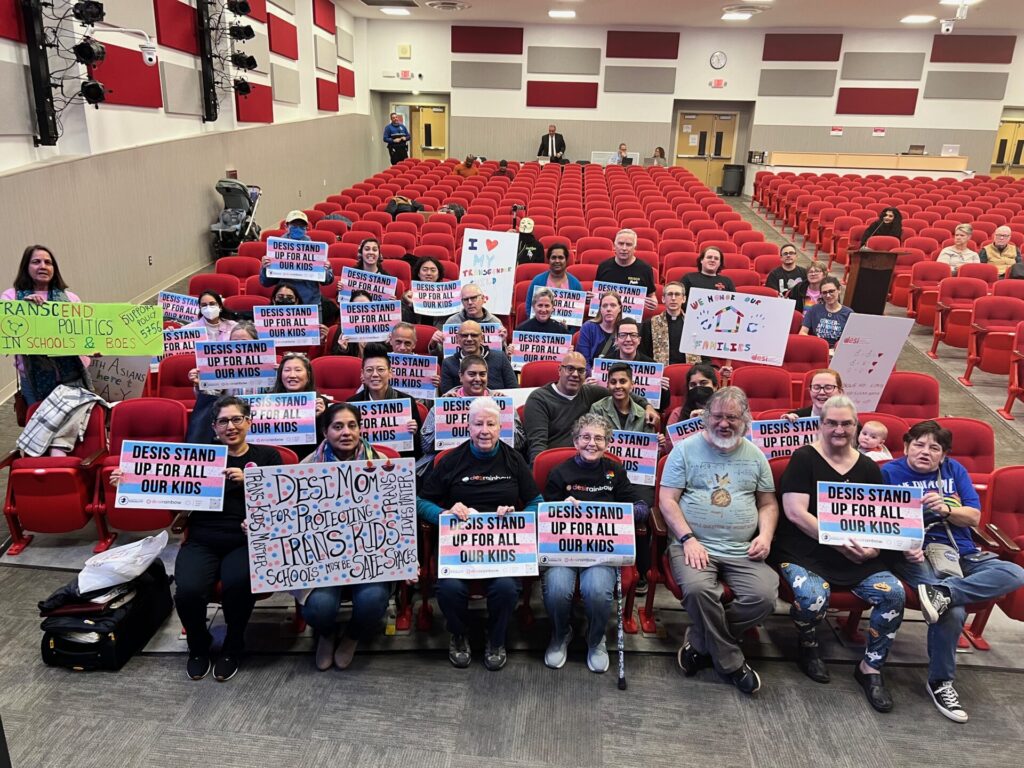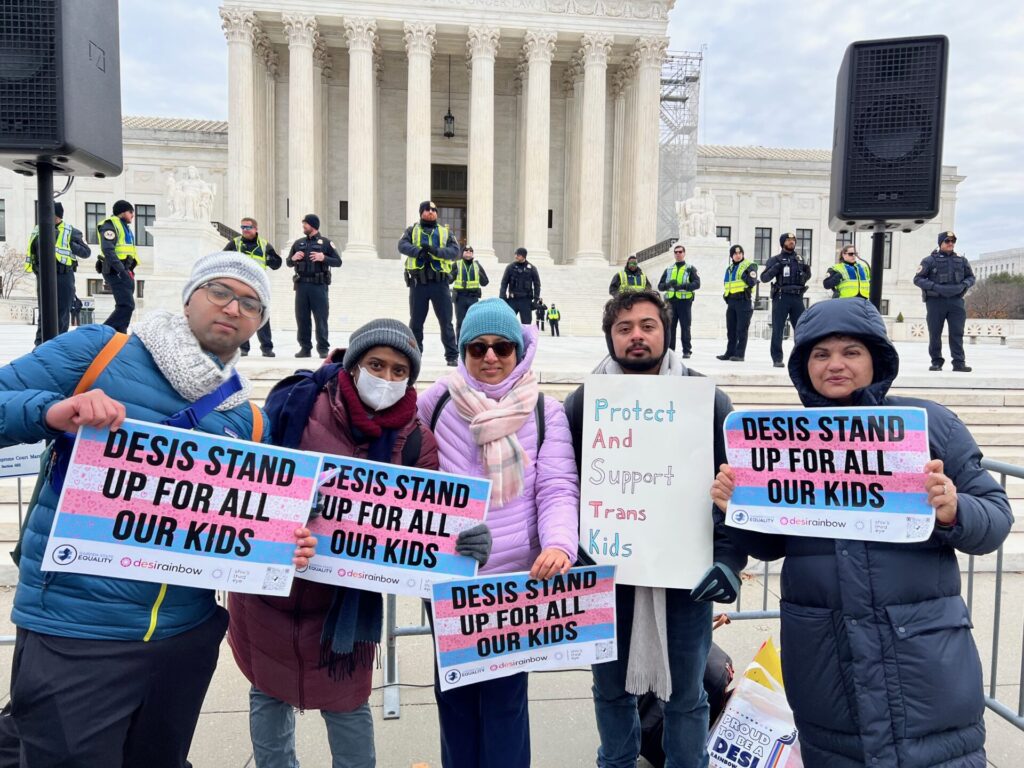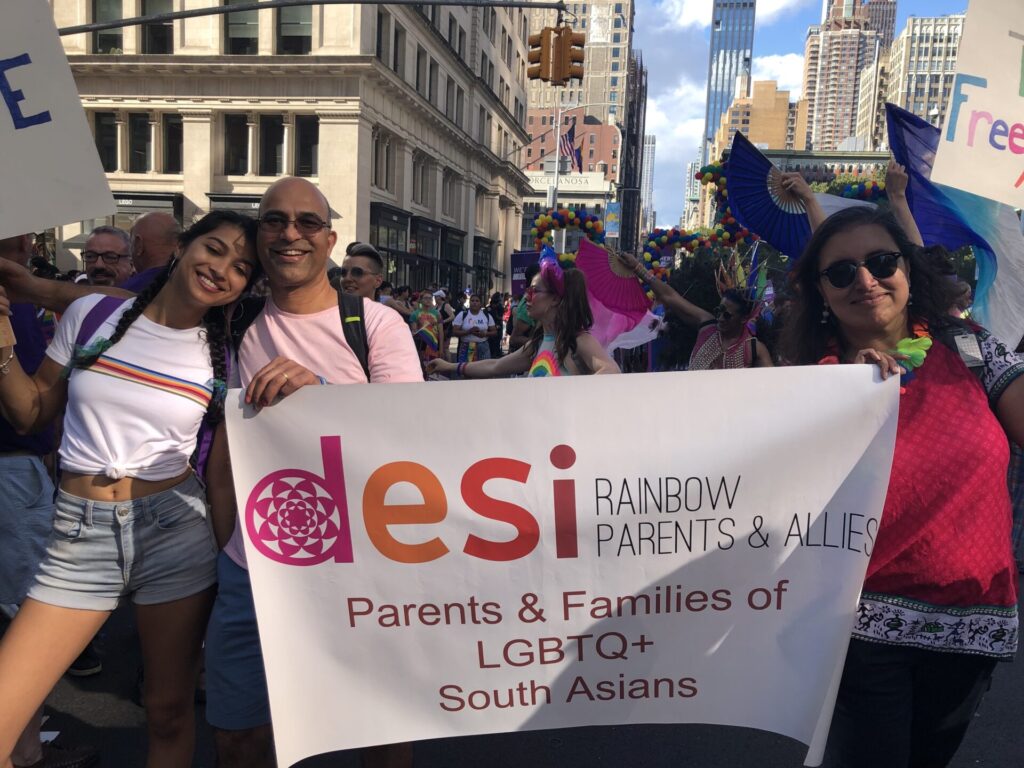
By Aruna Rao
My child, assigned female at birth, was 5 years old, when he told me that he was a boy, that he wanted to dress like a boy, cut his hair like a boy, answer to a boy’s name that he had chosen for himself. He asked me to call him by his chosen name, to help him present his true identity to the world. I had grown up in India with no exposure to queer or trans people, with gender roles rigidly defined and policed, and I didn’t understand what my child was saying to me – the idea of a gender identity different from sex assigned at birth was a completely foreign concept to me. I thought about what he was telling me through the lens of my perspective as a cis het woman who was frequently angry about the misogyny I encountered, both in my native and adopted countries. I told him that he didn’t need to be a boy to be powerful and strong, that girls could do anything that boys could. I told him stories of Durga and Kali, the powerful warrior goddesses of Hindu mythology who fought demons and decimated armies, read him books about women who were astronauts and athletes. My efforts were completely sincere and completely misguided. I didn’t have the language to understand that sex assigned at birth is not the same as gender identity. I came from a place of love, of wanting to support my child, but instead, I taught him that even those who loved him the most would never understand his true identity, and that it wasn’t safe to express his identity to anyone.

My son is now an adult. He’s a strong, compassionate, loving, intelligent, trans man. It took him many years to get to the place where he could live his life the way he wanted to when he was 5 years old. It took me many years to understand what he needed, realize how wrong I was, and to make amends as best as I could. We are lucky that our love and respect for each other has brought us to a place of mutual understanding.
Immigrant Desi parents like me are rarely exposed to queer and trans identities, and struggle when our children come out, seeing this as a frightening and strange process that is guaranteed to hurt and damage our children. In our desire to protect them, we can end up causing great harm to them. The irony here is that pre-colonial South Asia was open to diversity of gender and sexuality, and current anti LGBTQIA+ attitudes come from two centuries of colonization. Homophobic/transphobic colonial era laws and policies are only now being challenged and overturned, and the cultural change in our countries of origin is beginning to happen. Meanwhile, diaspora Desi communities are in a curious bind – we bring our anti-LGBTQIA+ attitudes with us when we immigrate, and our attitudes stay frozen in time, as we explain these attitudes to ourselves as being the value system and culture we want to pass on to the next generation.

My experience led me to start Desi Rainbow Parents & Allies, an organization offering support, education and advocacy for South Asian American LGBTQIA+ people and their families. Since 2020, Desi Rainbow has been offering culturally competent support groups and peer to peer support for queer and trans Desi’s and for their parents, creating educational workshops for families and community based organizations to understand the diversity of gender and sexuality and to stand up as allies for all our children.
Desi Rainbow has created a powerful movement in the Desi diaspora, offering a space for intergenerational understanding and allyship, reconciling families of birth and creating chosen family. We address the intersection of race, ethnicity, culture, immigration, sexuality and gender for diaspora South Asians. The most compelling and profoundly moving statements I have heard are from LGBTQ+ people who have told me that Desi Rainbow offers a space where they feel completely and unequivocally whole. Too many South Asians have to navigate the world by always keeping some part of themselves hidden – hiding their Desi self in mainstream LGBTQIA+ spaces, hiding their queerness in Desi spaces. Parents of LGBTQIA+ children also navigate similar battlefields, trying to understand and accept their LGBTQ child’s identity while fighting stigma and bigotry from their extended family and friends, and facing racism and xenophobia in the community.

All of these layers of complexity in navigating our worlds leave us feeling alone and defeated. Desi Rainbow’s power lies in building a community that ends isolation, that offers joy and contentment in living our truth, in being seen and loved, just as we are.
My hope this APIDA month is that we break the barriers that prevent all families from providing what their children need and prevent children from expressing their truth.
—
To find out more of Aruna’s work and Desi Rainbow Parents & Allies check out their website here!












